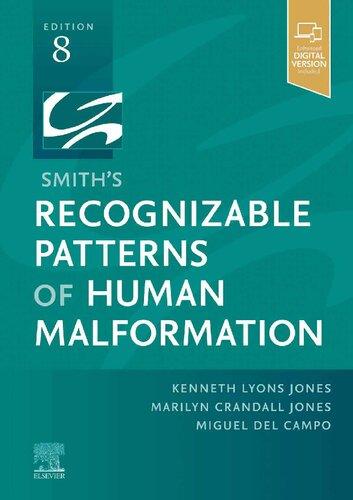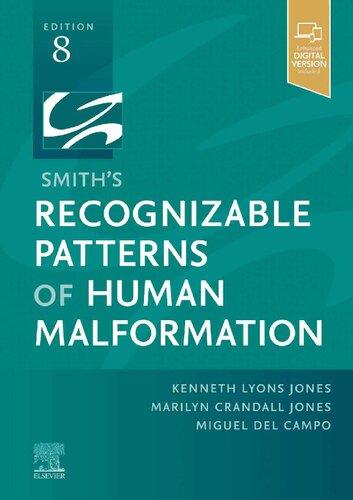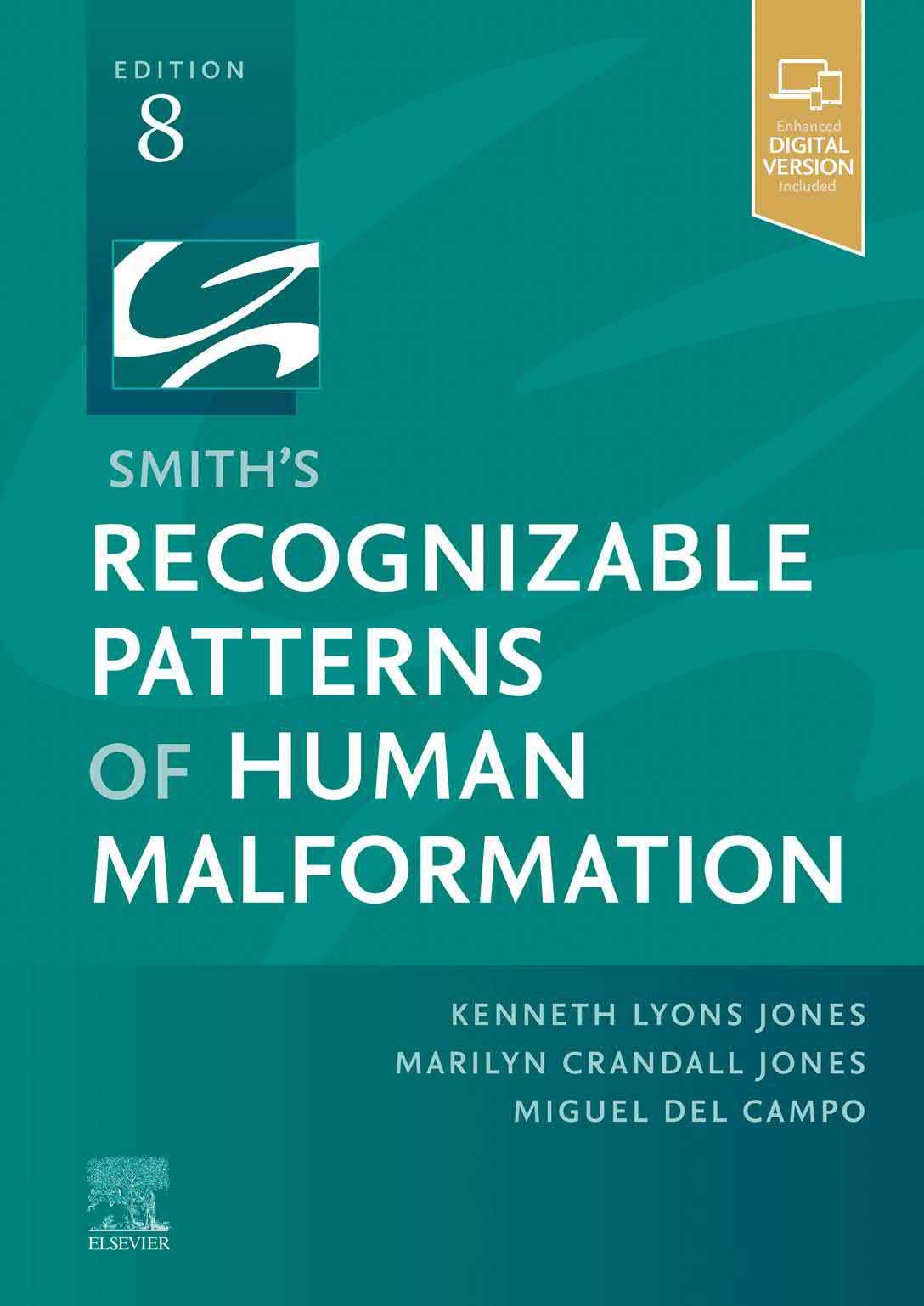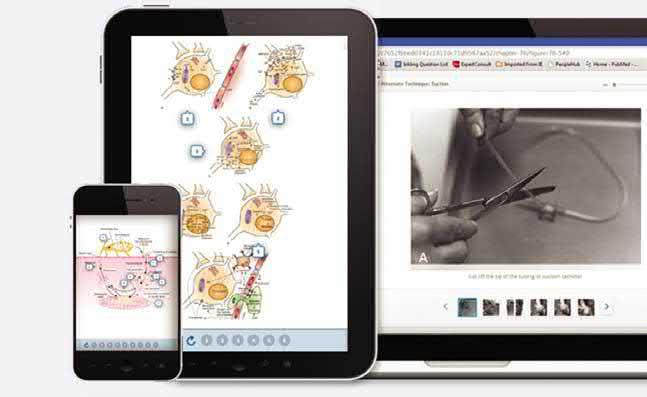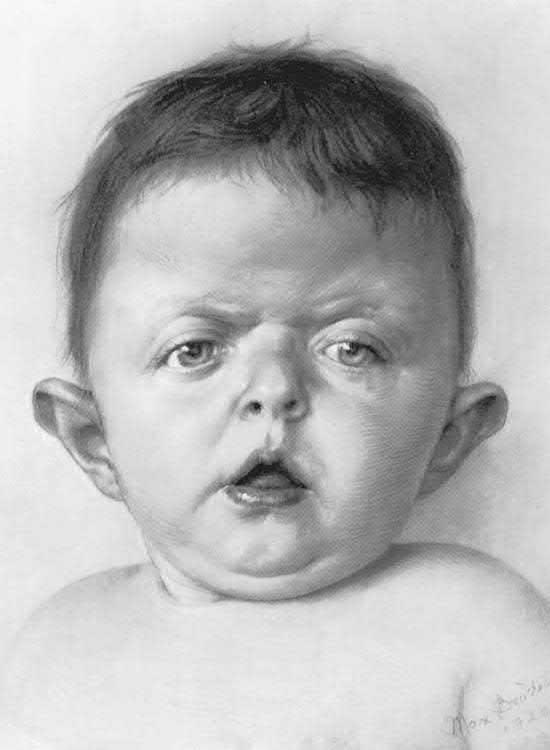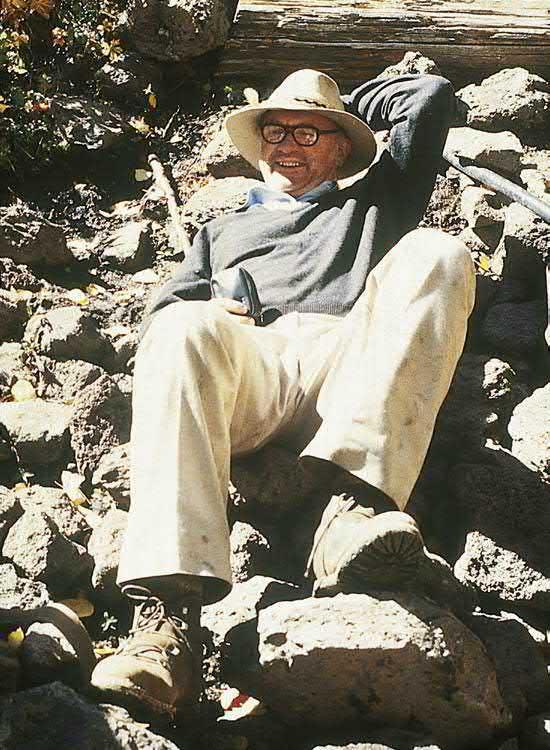SMITH’S RECOGNIZABLE PATTERNS OF HUMAN MALFORMATION
KENNETH LYONS JONES, MD
Professor of Pediatrics, Chief, Division of Dysmorphology and Teratology, University of California, San Diego, School of Medicine, La Jolla, California
MARILYN CRANDALL JONES, MD
Professor of Clinical Pediatrics, Department of Pediatrics, University of California, San Diego, School of Medicine, La Jolla, California; Clinical Service Chief, Division of Genetics, Rady Children’s Hospital, San Diego, California
MIGUEL DEL CAMPO, MD, P h D
Professor of Clinical Pediatrics, Department of Pediatrics, University of California San Diego, and Rady Children’s Hospital San Diego, San Diego, California
Elsevier
1600 John F. Kennedy Blvd. Ste 1800 Philadelphia, PA 19103-2899
SMITH’S RECOGNIZABLE PATTERNS OF HUMAN MALFORMATION, EIGHTH EDITION
Copyright © 2022 by Elsevier, Inc. All rights reserved.
ISBN: 978-0-323-63882-1
No part of this publication may be reproduced or transmitted in any form or by any means, electronic or mechanical, including photocopying, recording, or any information storage and retrieval system, without permission in writing from the publisher. Details on how to seek permission, further information about the Publisher’s permissions policies and our arrangements with organizations such as the Copyright Clearance Center and the Copyright Licensing Agency, can be found at our website: www.elsevier.com/permissions
This book and the individual contributions contained in it are protected under copyright by the Publisher (other than as may be noted herein).
Notice
Practitioners and researchers must always rely on their own experience and knowledge in evaluating and using any information, methods, compounds or experiments described herein. Because of rapid advances in the medical sciences, in particular, independent verification of diagnoses and drug dosages should be made. To the fullest extent of the law, no responsibility is assumed by Elsevier, authors, editors or contributors for any injury and/or damage to persons or property as a matter of products liability, negligence or otherwise, or from any use or operation of any methods, products, instructions, or ideas contained in the material herein.
Previous editions copyrighted 2013, 2006, 1997, 1988, 1982, 1976, 1970.
Library of Congress Control Number: 2020952398
Content Strategist: Sarah Barth
Content Development Manager: Kathryn DeFrancesco
Content Development Specialist: Joanie Milnes
Publishing Services Manager: Shereen Jameel
Senior Project Manager: Karthikeyan Murthy
Design Direction: Renee Duenow
Printed in India
Last digit is the print number: 9 8 7 6 5 4 3 2 1
Dedication to the First Edition
To my wife, Ann, beloved inspirational companion
To my father, William H. Smith, accomplished engineer and would-be physician
To my teachers, Dr. Lawson Wilkins, molder of clinicians and humanist, and Professor Dr. Gian Töndury, complete anatomist, who brings embryology into living perspective
This page intentionally left blank
Dedicated to the Memory of David W. Smith, MD 1926–1981
“Far better it is to dare mighty things, to win glorious triumphs, even though checkered by failure, than to take rank with those poor spirits who neither enjoy much nor suffer much, because they live in the great twilight that knows neither victory nor defeat.”
Theodore Roosevelt, in a speech before the Hamilton Club, Chicago, April 10, 1899
The information set forth in this book represents an amalgamation of the knowledge, commitment, and hard work of many individuals. We would like to acknowledge a number of those who have made significant contributions to the development of this book:
Dr. Kurt Benirschke’s breadth of knowledge, intellectual curiosity, and wisdom acted as a continuing stimulus for us. We will miss him greatly.
Dr. Christina D. Chambers’ enthusiasm, creativity, and understanding of epidemiology have made me aware of a totally new approach to understanding the causes of birth defects.
Dr. Robert J. Gorlin and Dr. David L. Rimoin had a substantial influence on the thinking that went into this book. Both were great scientists and clinicians who had a significant impact on our field. We will miss them incredibly.
Dr. del Campo would like to acknowledge Dr. Alfredo Garcia-Alix Perez for his constant inspiration for my understanding of birth defects and Dr. Luis Alberto Perez Jurado for his teaching and constant support in my professional development in clinical genetics.
We are grateful to the following fellows in dysmorphology/genetics at the University of California, San Diego: Dr. H. Eugene Hoyme, Sanford School of Medicine, University of South Dakota and the University of Arizona, Tucson; Dr. Luther K. Robinson, State University of New York, Buffalo; Dr. Ronald Lacro, Children’s Hospital of Boston; Dr. Christopher Cunniff, Weill Cornell Medical College, New York, Dr. Rick Martin, Shire Human Genetic Therapies, Cambridge, Massachusetts; Dr. Leah W. Burke, University of Vermont; Dr. Stephen R. Braddock, St Louis University School of Medicine; Dr. Lynne M. Bird, University of California, San Diego; Dr. Kenjiro Kosaki, Keio University, Tokyo; Dr. Mary J. Willis, Balboa Naval Hospital, San Diego; Dr. Keith Vaux, University of
California, San Diego; Dr. Kristen Wigby, University of California, San Diego; Dr. Carolina Galarreta, Valley Children’s Hospital Madera, CA. Each has made his or her own significant contribution to the development of this book.
Many colleagues have contributed photos, information, and expertise. Especially helpful have been Dr. John Carey, University of Utah School of Medicine; Dr. Michael Cohen, Jr., Dalhousie University, Halifax, Nova Scotia; Dr. Judith Hall, University of British Columbia, Vancouver; Dr. Jaime Frias, Centers for Disease Control and Prevention; Dr. Jon Aase, University of New Mexico; Dr. Bryan Hall, University of Kentucky, Lexington; Dr. James Hanson, University of Iowa; Dr. Sterling Clarren, University of Washington School of Medicine; Dr. John Graham, Cedars-Sinai Medical Center, Los Angeles; Dr. Margot Van Allen, University of British Columbia, Vancouver; Dr. Cynthia Curry, University of California, San Francisco; Dr. Roger Stevenson, Greenwood Genetic Center, Greenwood, South Carolina; Dr. Buzz Chernoff, Sacramento; Dr. Jeffrey Golden, Harvard Medical School; Dr. Mike Bamshad, University of Washington; Dr. David Weaver, Indiana University School of Medicine; Dr. Jules Leroy, Ghent University Hospital, Ghent, Belgium; Dr. Mark Stephan, University of Washington School of Medicine; Dr. Margaret Adam, University of Washington; Dr. Art Aylsworth, University of North Carolina; Dr. Melanie Manning, Stanford University, Palo Alto; Dr. Angela Lin, Massachusetts General Hospital; Dr. Carol Clericuzio, University of New Mexico; Dr. Ian Krantz, Children’s Hospital of Philadelphia; Dr. Maximilian Muenke, National Institutes of Health; Dr. Kosuke Izumi, Children’s Hospital of Philadelphia; Dr. Raoul Hennekam, University of Amsterdam, Netherlands; Dr. Alain Verloes, Robert-Debre Hospital, France; Dr. Vanesa Lopez Gonzalez, Hospital Clinico Universitario Virgen de la Arrixaca-IMIB, Spain.
G Unusual Brain and/or Neuromuscular Findings with Associated Defects
H Facial Defects as Major Feature
I Facial-Limb Defects as Major Feature
Campomelic Dysplasia 482
Achondroplasia 484
Hypochondroplasia 492
Pseudoachondroplasia 494
Acromesomelic Dysplasia 498
Spondyloepiphyseal Dysplasia Congenita 502
Kniest Dysplasia 506
Dyggve-Melchior- Clausen Syndrome 508
Spondylometaphyseal Dysplasia, Kozlowski Type 510
Metatropic Dysplasia 512
Geleophysic Dysplasia 516
Chondroectodermal Dysplasia 518
Diastrophic Dysplasia 520
X-Linked Recessive Spondyloepiphyseal Dysplasia Tarda 522
Multiple Epiphyseal Dysplasia 524
Metaphyseal Dysplasia, Schmid Type 526
Metaphyseal Dysplasia, McKusick Type 528
Chondrodysplasia Punctata, X-Linked Dominant Type 530
Autosomal Recessive Chondrodysplasia
Hypophosphatasia 536 Hajdu- Cheney Syndrome 538
Craniometaphyseal Dysplasia 542
Oto-Palato-Digital Syndrome, Type I 544
Oto-Palato-Digital Syndrome, Type II 546
Melnick-Needles Syndrome 550
Frontometaphyseal Dysplasia 554
L Osteochondrodysplasia with Osteopetrosis
Osteopetrosis: Autosomal Recessive— Lethal 558
Lenz-Majewski Hyperostosis Syndrome 562
Pyknodysostosis
M
Craniosynostosis Syndromes
Syndrome 586 Craniofrontonasal Dysplasia 588
Syndrome 592 Greig Cephalopolysyndactyly Syndrome 594 Antley-Bixler Syndrome 596 Baller- Gerold Syndrome 598
N Other Skeletal Dysplasias
O Storage Disorders
P Connective Tissue Disorders
Q Hamartoses
R Ectodermal Dysplasias
Hypohidrotic Ectodermal Dysplasia 760
TP-63 Related Ectodermal Dysplasia 764
Finlay-Marks Syndrome 768
Tricho-Dento- Osseous Syndrome 770
Clouston Syndrome 772
Cranioectodermal Dysplasia 774
GAPO Syndrome 778
Pachyonychia Congenita Syndrome 780
Senter-KID Syndrome 782
S Environmental Agents
Fetal Alcohol Spectrum Disorders 786
Fetal Hydantoin Syndrome 792
Fetal Valproate Syndrome 794
Fetal Warfarin Syndrome 796
Fetal Aminopterin/Methotrexate Syndrome 798
Retinoic Acid Embryopathy 800
Methimazole/Carbimazole Embryopathy 802
Mycophenolate Mofetil Embryopathy 804
Fetal Varicella Syndrome 806
Hyperthermia-Induced Spectrum of Defects 808
Congenital Zika Syndrome 812
T Miscellaneous Syndromes
Coffin-Siris Syndrome 816
Börjeson-Forssman-Lehmann Syndrome 820
Alagille Syndrome 822
Bardet-Biedl Syndrome 826
Wiedemann–Steiner Syndrome 830
Axenfeld-Rieger Syndrome 834
Peters-Plus Syndrome 838
Mowat-Wilson Syndrome 840
Cerebro- Costo-Mandibular Syndrome 844
Jarcho-Levin Syndrome 848
Berardinelli-Seip Congenital Lipodystrophy Syndrome 852
Kosaki Overgrowth Syndrome 854
Distichiasis-Lymphedema Syndrome 856
Hennekam Lymphedema-Lymphangiectasia Syndrome 858
Vici Syndrome 864
U Miscellaneous Sequences
Laterality Sequences 866
Holoprosencephaly Sequence 870
Meningomyelocele, Anencephaly, Iniencephaly Sequences 874
Occult Spinal Dysraphism Sequence 878
Septo- Optic Dysplasia Sequence 880
Klippel-Feil Sequence 882
Early Urethral Obstruction Sequence 884
Exstrophy of Bladder Sequence 886
Exstrophy of Cloaca Sequence 888
Urorectal Septum Malformation Sequence 890
Oligohydramnios Sequence 892
Sirenomelia Sequence 894
Caudal Dysplasia Sequence 896
Amnion Rupture Sequence 898
Limb–Body Wall Complex 902
V Spectra of Defects
Oculo-Auriculo-Vertebral Spectrum 904
Oromandibular-Limb Hypogenesis Spectrum 908
Congenital Microgastria–Limb Reduction Complex 910
Sternal Malformation–Vascular Dysplasia Spectrum 912
Monozygotic Twinning and Structural Defects—General 914
W Miscellaneous Associations
VACTERL Association 922 MURCS Association 926
CHAPTER 2
Genetics, Genetic Counseling, and Prevention 929
CHAPTER 3
Minor Anomalies: Clues to More Serious Problems and to the Recognition of Malformation Syndromes 955
CHAPTER 4
I
Another random document with no related content on Scribd:
Jean stood looking at him. He was a lovely little boy, but Jean had hardly reached an age appreciative of mere beauty. The sweet wistful eyes and delicate outlines were lost upon her. Jean's notion of a boy was of something reckless, dashing, untidy, headlong, noisy—of Oswald, in fact. This dainty small creature, with lace collar and spotless hands, by no means answered to the description.
"Where is your home?"
"Over there."
"Where? What—'The Brow!' Why, what's your name?"
"I'm Cyril John Devereux."
A pause of astonishment.
"And I'm Jean Trevelyan. But you're not—Cyril!" said Jean. "Aunt Marie said Cyril was ten years old."
"I'm ten next August."
"Ten! Stand up—straight."
Cyril obeyed.
Jean placed herself beside him, shoulder to shoulder.
"I'm ever so much the tallest and only nine last month."
"Ah, but I shall grow," said Cyril confidently. "I'm going to be a man."
"A man!" Jean looked him all over again, disdainful and compassionate. "What a pity you weren't made a girl!"
"Father liked me best to be a boy," asserted Cyril.
Jean suddenly remembered his father's death, and as suddenly she recalled the game of bowls.
"Oh, I can't wait. I'm forgetting," she cried. "I must find Oswald."
"Aunt Sybella said there was a boy called Oswald."
"He's my brother!" proudly again.
"Is he nice? Is he like you?" The violet eyes were fixed upon Jean with unspeakable admiration.
"Nice! There never was such a boy as Oswald in all the world—never!" declared the little sister, her soul shining in her face. "No, he isn't like me. Oh, of course not! I'm ugly; and he is—Oh, you don't know Oswald yet! Wait till you do! He is—he is—just Oswald!" cried Jean rapturously, as if the name implied everything.
"You're not ugly."
"Yes, I am. Everybody says so. It doesn't matter. I've got Oswald."
"Shall I like him?"
"I shouldn't like you, if you didn't."
Cyril looked thoughtful.
Jean was longing to be off; but a sense of this little fellow's helplessness restrained her.
"Where do you mean to go?" she asked.
"I don't know the way back."
"Why, over the stones, of course—as you came."
"Oh, I can't. I couldn't go across again—it frightened me."
"But you're a boy. You ought not to be frightened. Oswald never is."
Cyril glanced at the river and shivered, tears filling his eyes. "I can't," he said.
A whoop rang out, and Jean's contemplative face changed to one of delight.
"Oswald!" passed her lips, as a boy came rushing along the grass-grown path beside the river.
A genuine boy this time—strong and vigorous, hot and muddy, round-faced and rosy, nearly twice the size of the little baronet, though only two years or so his senior. His complexion was sunburnt, his hands were soiled, the cap was slipping off his tumbled hair, the trousers were torn at his knees.
"Hallo, Jean! Did you think I was lost? I say what shrimp have you fished up there?"
Jean sprang to meet her brother.
"It's Cyril Devereux," she whispered energetically. "He's come home, and his father is dead, and he's afraid of the stepping-stones."
"Whew!" Oswald contented himself with this brief commentary. "Well, come along; just time for a game of bowls."
Jean was nearly torn in half, between the pulling of her own desires on the one hand, and the pulling of duty on the other hand. Her whole soul was bent upon the promised game with the brother whom her little heart worshipped. But this poor small baronet, with his dread of the river, how could he ever find his way home?
It was one of those everyday occasions, when the child's decision one way or the other, does much towards the formation of that child's character. Either the bent towards right, the devotion to duty—the Pflichttreue—is strengthened, and the passion of self-pleasing is weakened; or vice versa.
Jean was sorely tempted; but her home training from babyhood had aimed to teach her one thing—always to do the Right, irrespective of cost to self. Such early training is an untold power for after-good. Every time the will conquers, it gains strength; every time it is overcome, it loses strength. Mere habit, one way or the other, has the compelling force of iron bands in later life. These bands were already in process of formation; and Jean did not hesitate long.
"I can't," she said; "he doesn't know the way round by the bridge. I must show him."
"Rubbish! A boy not able to find his way!"
"He isn't like most boys. He is so—funny!" Jean said, lowering her voice. "So little!"
"Little goose! Time he should learn to be like other boys."
Jean was silent.
"Well, you needn't ask me to come back for a game with you another day! That's all."
Jean's heart was ready to break under his displeasure, yet she stood to her duty.
"I'll make haste," she tried to say.
"Make haste to lessons, you mean! Stuff! Well—will you come?"
"I can't," she murmured.
"Then you're an ass! I shan't play with you again."
Oswald dashed off in a huff, and Jean's eyes were full.
She turned to the other child:
"Come," she said huskily, "we've got to make haste."
"Was that boy cross with you?" demanded Cyril, as they set off. He clenched his tiny hand, and the blue eyes sparkled. "If anybody is cross with you, I'd like—I'd like to fight him."
"No, you wouldn't! He is my brother. You are never to fight Oswald."
"But I will, if he is cross to you."
"It doesn't matter. He is only sorry I can't play. And so am I," added Jean, her chest heaving. "You must learn to get over those stones, you know. Boys never ought to be cowards."
Cyril looked up gravely.
"No, I won't," he said. "Father wouldn't like me to be a coward. I'll try to get over the stones all alone—some day."
CHAPTER III.
"DEAR
AUNT."
"Though man a thinking being is defined, Few use the grand prerogative of mind; How few think justly of the thinking few! How many never think, who think they do! Opinion, therefore—such our mental dearth— Depends on mere locality or birth."
JANE
TAYLOR.
"EVELYN!"
"Yes, aunt."
"Where are you going?"
"Into the garden."
"My dear, you have thin shoes on."
"Thick enough for August."
"No, indeed. The dew was quite heavy last night. And I heard you cough yesterday."
"Cough! I don't know what it is to take cold."
Sybella's brow puckered. "Really, Evelyn, that is childish. Everybody takes cold sometimes."
"I don't."
"My dear, I cannot let you risk it. I really cannot. And, besides—"
"Yes?" Evelyn stood, careless and graceful, outside the French window of the morning-room. She was a marvellously fair young creature; but the fringed black-blue eyes, like those of her little brother in shape and colour, wore a combative expression, as they met the anxious orbs of Sybella.
"My dear, I wished—I thought I had made you understand— I should like you to give up an hour or two every morning— two hours it ought to be—to some useful occupation. Dear aunt always insisted on that with me, when I was long past your age."
Miss Devereux sighed, and her voice grew plaintive. She, like Evelyn, wore heavy mourning, not alone for Sir Theodore, but also for old Mrs. Willoughby, who had passed away within a week of General Villiers' arrival, having never so much as heard of her nephew's death.
Two months had elapsed since then. Sybella stood alone in the world, so far as her accustomed props were concerned, but with a fresh and absorbing interest in life. She had the
children to care for. Sir Theodore had appointed her sole guardian of Evelyn and Cyril Devereux.
It was an interest which brought weighty responsibilities in its train.
"The children—" there was the rub! If it had but been only "the child!" Miss Devereux' whole heart went out from the first towards the gentle boy, who was always ready to respond to her caresses, always eager to give love for love. Every day the fascination grew upon her. From early morning till late at night her one idea was "Cyril." She dressed him in the daintiest garments compatible with mourning; she cultivated each curl and wave of his brown hair; she revelled in her new charge.
Cyril might undoubtedly be considered old enough for school. All the world agreed on this point. But Sybella had a mortal aversion to schools, diligently instilled into her by Sir John Devereux and Mrs. Willoughby, through the best part of her forty years. What they had thought, she continued to think, and if she lacked decision on many points, she knew her own mind here.
She displayed a sudden resolution which took people by surprise. School for Cyril! That little delicate darling to be knocked about by a horde of great rough boys! It would be the death of him! For once Sybella was determined, asking no advice. She would go in for any amount of advice on matters unimportant, but in this case she declined counsel, having her aunt's strong opinion to serve as a guide.
General Villiers reasoned in vain; friends lifted their eyebrows in vain. Sybella would teach the precious boy herself for the present, till he had rallied from the weakening effects of the Indian climate; and then—well,
then she would consider. A tutor, perhaps, or even a dayschool. Time enough for that. Miss Devereux was beginning to be conscious of her own power, and to resent what looked like interference with a guardian's prerogatives.
There might be no difficulty as to the actual lessons. Sybella, though not mentally gifted, had had a good education; and Latin was easily to be procured. But there was the question of boyish games, of boyish companionship; not to speak of the perils of over-petting and spoiling.
Miss Devereux was afflicted with a mortal horror of cold, of damp, of east winds, of draughts, of wet feet, of unwholesome food, of over-exertion. She did her best to instil this compound horror into her young charge. She watched and discussed everything that found its way into the baronet's pretty mouth. She examined the weathercock each day, before allowing him to go out. She tenderly consulted his looks and symptoms.
Sir Cyril was a most responsive little boy. He had always been delicate, and he was used to anxious petting. There were no struggles between the two. Miss Devereux found him malleable as wax in her hands. His sweet grave sayings, his trained politeness, his un-childlike understanding of some things, combined with a more than childlike timidity, his love of Bible stories, his readiness to be taught, his affectionate clinging to herself—all these were in Sybella's eyes "beautiful." She could not praise him enough to friends.
"The child is heavenly," she said often, with a gush of enthusiasm which made some smile, while others were touched, and yet others hoped that the little baronet "wouldn't be a prig!"
So for the present all went if not wisely at least smoothly, as regarded Cyril. But as regarded Evelyn, matters were far different.
Miss Devereux had sent for her in haste, on receipt of the sad news brought by General Villiers, feeling sure that the poor dear girl must be heartbroken, unable to give thought to lessons.
Evelyn came, though not too willingly. She was not brokenhearted; and anybody less sentimental than Sybella would hardly have expected her to be so, for a father whom she had not seen during ten years. The loss was a loss, and Evelyn knew it; nevertheless she grudged missing the final examination before leaving school.
It had been a settled matter that she should quit school after this term, to join her father either in India or in England.
Now all was changed. Evelyn had to live at Ripley Brow, under the guardianship of an aunt whom she did not love.
For the maiden lady of forty, with her unpractical ways, her pseudo-poetical tastes, her tendency to overstrained sentiment, her generally old fashioned ideas, never had "got on well," as the saying is, with the brilliant yet sensible and practical niece. Miss Devereux was secretly proud of Evelyn, but scarcely fond of her.
Evelyn had learnt before eighteen what Sybella did not learn till after forty—to stand alone. She had not been hardened like Madame Collier, for everybody loved Evelyn, who came within reach of her magic wand; and love is softening. She was accustomed to the worship of her schoolfellows, to the devotion of governesses and friends. It was a matter of course in Evelyn's life that wherever she
went, she should win affection. The one exception among all whom she knew—the one rift in her environment of adulation and love—was Sybella. Evelyn's wand had no power over Sybella; and Sybella was a perpetual irritation to Evelyn.
A stronger contrast could hardly have been found than between this aunt and niece. While Evelyn had not suffered hardening, she had been in a manner both braced and repressed by long years of school-life, with absence of home associations. Her training had been the precise reverse of Sybella's. She had developed under it rapidly; and few could believe her to be still not eighteen.
Sybella might have belonged to two generations earlier. Evelyn was a thoroughly modern girl; cool, self-possessed, independent, at her ease, afraid neither to speak nor to act, yet always entirely ladylike. Sybella was alarmed at her own shadow, frightened as to proprieties, seldom sure what she wished, rarely certain of her next step, and direfully in need of props.
Side by side with all this, however, Miss Devereux had distinct notions of subordination for young girls and of her own rights. She looked upon seventeen as scarcely past infancy, with need still for leading reins. "When I was seventeen—" settled the question. Evelyn, on the contrary, regarded herself as emancipated from all save a light authority, and well capable of judging in minor matters.
It was almost impossible that these two minds, brought together, should not suffer friction, each exciting the other.
Sybella had been brought up from infancy on a rigid and limited selection of doctrines, carefully expressed; and it had never so much as occurred to her that further truths
might exist beyond the boundary of the said selection. Her ideas on religious subjects were petrified into a permanent shape; that shape which had been handed to her readymade in childhood; and whatever did not fit into the said shape, like a pudding into a bowl, was at once rejected. The vigorous though narrow mind of the older lady had entirely formulated the niece's belief. What Sybella had received in early youth she had as a matter of course swallowed whole unhesitatingly; and she continued to hold the same unquestioningly.
Of reasons for accepting this or rejecting that, she cared little and knew less. Discussions terrified her, historical facts were "dangerous," and from "evidences," she fled in alarm. She believed what she believed because she believed it; and because she believed it anybody who did not believe it was in error.
The niece was again in these matters a contrast to her aunt, unable to look upon things from Sybella's standpoint. She had early worked her way to a disdain of mere party oppositions on religious questions; and her young wide awake mind, eager with the spirit of the age to dive below the surface, and to know the why and wherefore of things, was perpetually fretted by Miss Devereux's illogical fears and unreasoning positiveness.
Troubles were fast springing up between them. The Devereux household always went to St. John's Church, Dutton—not to Dulveriford Church—always had done so, and as a matter of course, always would. The Devereux household was traditionally extremely "Low" in its views; and the successive Dulveriford clergy had long been more or less "High"; therefore like oil and water, they flowed apart, failing to mingle. Moreover, Mr. Trevelyan's predecessor had been personally obnoxious to Mrs.
Willoughby; and Mr. Trevelyan, stepping into his place, had small chance of pleasing her. To be obnoxious to Mrs. Willoughby was to be obnoxious to the family. If easy-going old Sir John spoke a pleasant word now and then to his Rector, he did it sub rosa, concealing the delinquency from his sister. Sybella, indoctrinated from infancy with her aunt's notions, counted no condemnation too strong for the doings of "that man." Had not "dear aunt" always "strongly disapproved" of him?
But Evelyn counted St. John's architecturally ugly, and she found Mr. Kennedy prosy. His mild "comforting" sermons, which delighted the hearts of the middle-aged ladies and elderly gentlemen of the congregation, had only a soporific effect upon Evelyn. Her cultivated musical taste, repelled by the tuneless shouting of St. John's, was attracted by the well-trained choir of Dulveriford.
The next step was a warm liking on her part for Mr. Trevelyan, and a girlish readiness to submit herself to his teaching. How much of this preference sprang from a spirit of opposition, it would be hard to say. No doubt it was real of its kind.
Miss Devereux could not prevent the personal acquaintance. The two families had lived too long in close neighbourhood to be strangers; and, so far as his connections went, Mr. Trevelyan might be counted unexceptionable. Mrs. Willoughby had, however, always strenuously resisted the growth of acquaintanceship into friendship; and Sybella set herself to do the same. Thereby, at once, she enhanced the value of the friendship to Evelyn.
There were bones of contention enough between them, without this in addition. Whatever the one thought, the
other did not think, on every conceivable subject, from questions of Church and State, down to the quilling of a frill.
Sybella's incessant quoting of Mrs. Willoughby provoked Evelyn. She did not see what it had to do with her occupations, or why she needed to follow certain rules, merely because Sybella had followed them at her age.
"I don't intend to pass my days uselessly," she answered.
"But some regular plan—Indeed, I assure you, it is really necessary for young girls. Dear aunt always said—"
Evelyn's involuntary movement was like that of a highmettled horse, akin to a shake of the mane, with a backward step, as if in retreat.
"Wait a moment. Pray do not be so impatient, Evelyn. It is necessary that I should sometimes speak; and you ought not to be annoyed. It is—" plaintively, "only for your good."
"Well?" in a questioning tone.
"There is one thing I must mention. I am sorry, but it is my positive duty to—otherwise I would—If I am not misinformed, you went yesterday I have reason to believe that you were at the Rectory—that you called there."
"Yes."
"It was not necessary—so soon. Only last week, and again yesterday! I thought had made this clear to you, but I seem to have failed. I must speak more plainly. I do not wish to complain, but, once for all, pray remember that I object to
any intimacy in that direction. I have said this before, and it seems to have had no effect. You must please to recollect. An occasional call is all very well, but not oftener than is necessary."
"Why not?"
"We have never been intimate with the Trevelyans, and I do not intend to be. I could not allow it. Dear aunt very much disapproved of certain things—of Mr. Trevelyan's opinions, and—Pray listen to me, Evelyn. You need not look so impatient. He holds most erroneous views about and at one time dear aunt found him most unpleasant—"
"Erroneous views about what?"
"I see no necessity for explaining more. You are a mere child still, and cannot enter into these questions. Only you must understand that I should not think of allowing any intimacy. It is out of the question—and I expect strict obedience in the future." Sybella was becoming agitated, and she twirled her hands nervously. "Dear aunt would have said the same, and I am sure, if she had ever thought—My dear, pray listen to me."
"I am listening. I cannot say that I understand. The Trevelyans seem to me the nicest people about here."
"That is all perversity, Evelyn. You do not really know anything of them. They are well-connected, but as for manner—! It is out of the question that anybody should think Mr. Trevelyan attractive. And as for Mme. Collier—!" Sybella's tone spoke the very quintessence of contempt.
"She is odd, but I like her. I like her immensely. She is so genuine. And Jean fascinates me. And Mr. Trevelyan is the best—the most really truly good man I ever came across. I
could listen to his sermons for hours. Of course I have only heard him two or three times—I have not been to Dulveriford Church since you said I must not. But one very soon knows what does one good. I like even his queer dry manner. He is different from everybody else, and that is so refreshing."
"You are saying all this to vex me, of course," quavered Sybella, reddening. "Just because you know how I feel. Go to Dulveriford Church! I should think not indeed!—From Ripley Brow at all events! And I expect the same obedience as to the acquaintance. Just politeness and no more. When, all these years, we have kept so carefully aloof—"
"I don't think one ought to keep aloof from one's Rector. I don't think it is right."
"Really, Evelyn—! But it all comes from your training. I always have felt it a thousand pities that you went to that school. If your dear Papa would have taken our advice—"
"My father was the best judge."
Evelyn made another backward step, which landed her on the lawn—a happy occurrence. It diverted Miss Devereux's attention from the Trevelyans to her pet hobby—health.
"Child! The grass! And your thin shoes!"
Evelyn turned and fled. She could not trust herself to remain longer; but it was a pity that she ran straight across the lawn. The deed looked like defiance.
CHAPTER IV.
SEVERELY SMITTEN.
"She should never have looked at me, If she meant I should not love her."
R. BROWNING.
SYBELLA'S forehead wrinkled as Evelyn fled, and she sighed pensively.
"I shall have to appeal to General Villiers," she murmured. "He has more influence over the girl than I have. So very wilful and obstinate! It is most melancholy. But she will listen to General Villiers, because he was her father's friend; and he will not approve of such conduct. I must certainly speak to him. He is almost sure to look in by-and-by."
This was true. General Villiers had taken to "looking in" on most days: and undoubtedly he had a strong influence over Evelyn. Sybella thought him most kind and fatherly to the child: only perhaps a little too ready to show how very pretty he thought her.
Sometimes it struck Sybella that he came to the house rather often, all things considered. There were a good many arrangements to be made, and he had constituted himself general adviser and helper: but still—! Now and again this thought would recur, bringing a blush with it. Could he
mean anything particular? General Villiers was only about fifty-five in age, and except for his grey hairs, he did not look so much. He was handsome and gentlemanly; a person of good standing and of considerable wealth. His antecedents were irreproachable. Sybella herself was barely forty. Fifteen years of difference on the right side! What could be more suitable?
Some such ideas floated vaguely through her mind, as she came indoors and sat down. She was not in the least in love with General Villiers; but she was quite ready to fancy herself so, if desirable; and she felt that matters began to look suspicious. That poor dear man might well feel lonely at Dutton Park, with no companion. Sybella woke up at the sound of an "Auntie darling!" to find Cyril by her side.
"Auntie darling, may I go out?" He systematically addressed her thus—to the delight of Sybella, but not at all to the delight of Evelyn. The iteration was apt to grow tiresome.
"Yes, my pet. But you must put on your overshoes, and your coat and necktie. The wind is east."
"Yes, auntie darling."
"And don't go on the grass, or sit down anywhere."
"No, auntie darling."
"You are pale, my sweet. Not a headache, I hope?"
Cyril had to consider. "Just a little wee one, auntie darling."
"Then you must not play in the sun. Walk in the shade; and mind you don't run fast so as to get too hot."
"No, auntie darling."
"If you see Evelyn, don't let her excite you. And if the headache doesn't go soon, you must come in and lie down. Something must have disagreed with you yesterday. Perhaps it was the baked apple. I think you had better have only broth to-day for dinner—and just a little dry toast."
"Yes, auntie darling."
Cyril obeyed the various directions given, so long as he remembered them. He crept about in the shade, like a venerable invalid, till near the river. By that time the fresh air, acting upon so much of a boyish nature as had been allowed to develop in him, overcame the cultivated languor, and he began to run. A bright idea sprang up, and Sybella's cautions vanished.
He had never yet made a second trial of the steppingstones. He would do it now. Jean had urged him to conquer. He would not be a coward.
There was natural force of will in the boy, though his fond parents had done their best in the past to weaken it; though his doting aunt was now doing her best to carry on the process.
"You don't like so-and-so! Then don't do it, darling!"—had been the manner of his training hitherto. Such treatment is an absolute cruelty to a child, unfitting him for the exigencies of future life. To teach a child to master his own will, to control his own inclinations, is a grand beginning for life. To wrap the will in cotton-wool, and slay its vitality through disuse, means often a terrible after-slavery to the inclinations. "If I like!" becomes the rule of action in place of "If I ought!"
Cyril had enough of latent vigour to prevent his succumbing utterly to even Sybella's training. As yet, however, he was
very young for his age; small, timid, almost babyish; and his affectionateness made him the more malleable. The chief bracing influence in his little life was Jean Trevelyan. Oswald frightened him; and he shrank from Evelyn's high spirit; but he was ready to do or bear anything for Jean.
So he made the effort bravely, though his heart fluttered, and dire sickness crept over him, as the waters ran past. He knew no more than did Jean of the physical weakness which caused these sensations. It was "cowardice" in his eyes as in Jean's; and it had to be conquered, because she said so.
From stone to stone, he struggled on—whitening, shivering, hardly able to hold himself upright, till the middle of the stream was reached. Then he could do no more. Water and banks swept round with dizzy whirl, and as he crouched down in a forlorn little heap, he seemed to be sinking through unfathomable depths. He would not cry this time, for Jean despised boyish tears, but further advance was not possible.
"Hallo! What's wrong?"
It was a man's voice, full and musical; a voice unknown to Cyril. A few strides brought the owner of the voice near, and Cyril was lifted in a pair of strong arms, to be carried the rest of the way.
"What's the matter, you poor little chap?"
Cyril burst into tears. "Oh, I did want to get over," he sobbed, "and I couldn't; and Jean—Jean—"
"What about Jean?"
"Jean says—says—it's so cowardly and she won't won't love me!"
"What's cowardly?"
"I can't get across the stones."
"Turns you giddy, eh?"
"Yes," sobbed Cyril, from the depths of his heart.
"Never mind. I wouldn't cry. When I was a little fellow like you, I was just the same—every inch as bad; and you see I don't mine the stones now."
Cyril was wonderfully comforted. Tears lessened, and he could manage to look up into the other's face—a young face, frank and kindly; with a mouth of exquisite curves, sweet, strong, and smiling; with a broad forehead above the grey eyes, which were full, half of mockery, half of tenderness, a touch of sadness running through both.
"Please put me down," entreated Cyril, direfully afraid of seeming girlish.
The young man obeyed very gently, as if he were handling a piece of porcelain. There was something porcelain-like in the child's look. Cyril tottered, and caught at his new friend.
"Dizzy still, poor little man? Sit on this bank."
"I mustn't. Auntie says the grass is damp to-day. And I promised."
"Whew! Quite right to do as you are told. Well; you won't find me damp. I'll be your cushion."
He threw himself down, lifted Cyril on his knee, and encircled the child with kind arms. Cyril rested his curly head on the broad shoulder, with evident relief.
"That's better, eh? Now tell me your name. Cyril! What— little Devereux? I know all about you. And is Jean a friend of yours?"
"Jean? O yes! I do love her so."
Pretty, but hardly boy-like, the young man thought.
"She's a jolly little girl, isn't she?"
"Do you know Jean?"—with great eagerness.
"Rather! I should think so! Hasn't she ever talked to you about Cousin Jem? If not, I'll pay her out."
The mocking grey eyes sparkled, then grew soft as they glanced down on Cyril's tiny white hand. Jem's oppositions of mood were almost as marked as those of Jean.
"O yes; I know. Jean told me. She said Cousin Jem was a sort of a cousin. And she likes him—you, I mean—ever so much. Next after Oswald, you know. And I think I shall like you next after Jean. And Evie said you were coming to stay with General Villiers. But—" with an elderly air—"I didn't know it was you, of course, at first: because Evie called you a boy."
Cyril was regarding, in his turn, the muscular brown hand beside his own, a hand of aristocratic outlines and powerful grasp, matching well the lithe muscular figure.
"Evie calls everybody boys."
"Does she? Who is Evie?"
"Oh, she's my sister. She's so pretty. I love Evie; only not like Jean." A pause, as if for reflection. "I mean to marry
Jean, some day."
"Ah!" said Jem. "Have you told her so?"
"O no!" Cyril's voice had a sound of indignant surprise. "I haven't told anybody."
"Except me!" Jem Trevelyan was used to this. He had the indescribable power over all who came in contact with him, which causes unlimited confiding. Young as he was, other people were perpetually telling him things which they "had told nobody else." He never knew why: neither did they: but in a tête-à-tête with Jem, secrets were sure to ooze out; and Jem never abused anybody's trust.
"You won't tell Jean!"
"Not a word. You needn't be afraid. I wouldn't advise you to tell Jean either. Many a lady is lost through the gentleman speaking too soon." Jem stated this as seriously as if he had been addressing a full-grown man; and indeed the little fellow's intense seriousness hardly admitted of a joke. "Wait a while."
"How long?"
"Oh, wait—let me see—how old are you?"
"I'm just ten."
"Well, you must wait ten or twelve years at the very least. Perhaps more. Never do to speak sooner."
"Jacob waited fourteen years."
"So he did." Jem mentally contrasted the patriarch with this dainty infant, and had difficulty in keeping his lips straight.
"If you have to wait fourteen years, it's nothing. Just bring you to twenty-four."
"And then I'll marry Jean."
"Supposing Jean consents. There's that little point to be considered. I'll tell you one thing—Jean will never marry a man to whom she can't look up. Do you understand? You must grow into a real man before you speak—strong and brave and good—a man she can respect and lean upon, not a twopence-halfpenny creature in a coat."
The words sank deep; deeper than Jem knew.
"Yes, I will!" said Cyril.
"And don't mind waiting. Don't be easily disheartened, or get into a tiff and throw it up, because she isn't to be had at the first go. If she's worth winning, she's worth waiting for."
Cyril heaved a sigh. Sybella was always giving vent to audible expirations of air, and the trick is infectious.
"I think Jean is just exactly like Rachel," he said. "Rachel was so beautiful, you know."
Jem's expression became comical. Had he uttered his thought, he would have said, "She's a queer little scarecrow, but she'll improve." Happily he was spared the need for a reply.
"Hallo! There she is! Wait and see if she knows me. We've not met for two years."
Jean advanced slowly, recognising Cyril, and perplexed at his position. Cyril would have struggled up, but for Jem's
grasp. When Jean came near, a flash of light appeared in her eyes.
"Cousin Jem!" she cried.
Jem pulled her down on the grass beside him, and kissed her cheek.
"How d'you do, little one? Can't get up, for I'm acting bolster. Here's somebody in mortal dread of a scolding from you. Tried to get over the stones, and turned giddy."
"Cyril is always frightened," Jean said, with disdain.
"It's not fear. He can't help the dizziness."
Jean looked up in surprise. "Can't he?"
"No. The feeling isn't cowardice. If he caved in, and made up his mind to be beaten, that would be cowardice. But he won't."
"I won't, really and truly, Jean," pleaded Cyril. "I did try so hard."
Jem's hand went with a tender motion over the curly hair. Jean saw and understood, the soft side of her nature springing in response.
"You won't mind some day, Cyril."
"Not he," said Jem. "He'll be as plucky as anything! See if he isn't! You must give him time. Everything isn't easy to everybody, you know. It really is braver of Cyril to get half over, feeling as he does, than for you to run backwards and forwards fifty times. Yes, of course, much braver!"— emphatically. "Because one is hard, and the other isn't.
Mind, Cyril, don't try it alone for a time or two. Take Jean's hand, and try a few stones. Do a little more every day. Byand-by you won't care a rap."
"No, I won't," assented Cyril.
"It's a nasty feeling. I used to be just as bad—got into an awful funk if I had to walk along a board. Had a hard fight too, before I could master it. But it had to be mastered. If I'd given in, and been a slave to that, I should have been a slave to a hundred other fancies as well; and think what a useless fellow I must have grown. Always a bother to myself, and a hindrance to everybody else."
"I won't!" declared the little baronet, with concentrated earnestness.
"That's right. You'll conquer, never fear! Now you're better, eh? Able to stand again? Why!—Who—?"
Jem, otherwise James Trevelyan, sprang to his feet, snatching off his cap.
He had seen pretty girls in his lifetime—any number of them; and his pulse was not wont to beat fast at the sight. They did beat now, furiously. For not many "pretty girls," so called, could match the one coming at this moment across the stones.
She was tall for her age, slight and willow-like in figure. Brown hair clustered thickly about the brow; and dark curled lashes fringed the violet eyes. Other features, if not classically beautiful, were delicate, unobtrusive, and set off by a rare complexion of ivory and pale rose. One ungloved hand held a garden hat, the other guarded a crape-trimmed skirt.
In leisurely style she drew near; not troubling herself to put on the hat; not in the least embarrassed by Jem's bewildered gaze. Evelyn saw it, of course; but admiration was an everyday thing in her life. It came and was accepted, much in the same fashion that sunshine comes and is accepted.
Had admiration failed, Evelyn would have felt the loss. Having it in superabundance, she received it carelessly. While aware of her own exceptional charms, and appreciating the privileges of beauty, she was far less vain, far less occupied with her own looks, than many a girl not one tithe so fair. Evelyn was much more disposed to vanity in respect of her mental gifts than of her pretty face.
"That's Evie," announced Cyril.
"Who?"
"It's Cyril's sister—Evelyn," said Jean, wondering what had come over "Cousin Jem."
Jem stood motionless, cap off, till Evelyn quitted the last stone. Then he went forward, and offered his help for the ascent of the bank.
"Thanks!" Evelyn said, smiling, and just touching the brown hand. She needed no help, but she was too gracious a being to refuse. "Thanks!" she repeated, reaching the level path, with a kind look at Jem which finished him off completely, though it was no more than she would have given to gardener or butler for a service rendered. "Is anything wrong with Cyril?"
"He turned giddy, crossing the river," said Jem.
"But I'm going to try again, and I mean to do it," exclaimed Cyril. "He says he was just as bad, Evie, and he got over it. And I mean to be brave. Jean says I must."
"Jean says!" repeated Evelyn. It recalled Miss Devereux's perpetual citing of "dear aunt."
"He's a boy," explained Jean.
"And I'll be a man some day," cried the little baronet. "You'll see, Evie. I'll take care of Jean when I'm a man."
"Jean is more likely to take care of you at present."
"That state of things is often reversed later," observed Jem, feeling for once unaccountably shy, and striving after selfpossession. He was not given to shyness commonly. "Cyril and I had to perform self-introductions. Jean was our connecting link."
"Then perhaps you are General Villiers' friend?"
"And he isn't a boy," cried Cyril, drowning Jem's assent.
Evelyn did not blush. She said, "No?" and looked straight at Jem with a soft laugh, which put him at his ease, but tightened the strings of fascination.
"I reached Dutton Park last night. General Villiers, is an old friend of some of my family. A delightful man."
The girl's eyes drooped. "He is—I don't know anyone like him!"
"A sort of modern preux-chevalier style."
"And always so gentle."
Jem wondered whether any human being could be otherwise than gentle to Evelyn. He knew little of Miss Devereux.
Evelyn made a move as if to go. "Come, Cyril—" she said; "we will walk round by the bridge. I suppose you have had enough of the stepping-stones for one day."
"There's a prettier path to the Brow up the glen—crossing the rustic bridge," observed Jem. "But of course you know."
"Oh, I know it all. I have spent so many of my holidays here —only not very lately. That is my favourite ramble. But it is supposed to be too lonely for me, with only Cyril; and somehow nobody is ever free to escort us."
"Why, I go alone anywhere," said Jean.
Jem's glance went from the one to the other. "That is different," he remarked; and then he turned again to Evelyn, audacious though embarrassed. "If you would not mind—Jean and I would gladly act escort. The glen is perfect just now. You really ought to see it. I have been the whole round this morning."
"Thanks!" in a considering tone.
"Jean and I are cousins," apologetically. "So I thought—"
"A sort of cousins," corrected Jean, trained in habits of rigid accuracy.
"My father was first cousin to Jean's father, so Jean and I are 'seconds.' It is a convenient tie where people suit; and Jean and I do suit; so perhaps—"
"Perhaps, on the strength of it, we may count ourselves acquainted."
"There is General Villiers as well to vouch for my respectability."
"Ah!"—with a smile.
"Then you really will make use of us! I'll walk behind, if you would rather."
Evelyn laughed. She found the proposal tempting, and could see no harm. "I don't think a rearguard will be needful," she said. "Thanks—if it really is not giving you trouble—"
"Trouble!!" protested Jem.
CHAPTER V.
QUITE TOO UTTERLY.
"A dim Ideal of tender grace
In my soul reigned supreme; Too noble and too sweet, I thought, To live, save in a dream— Within thy heart to-day it lies, and looks on me
